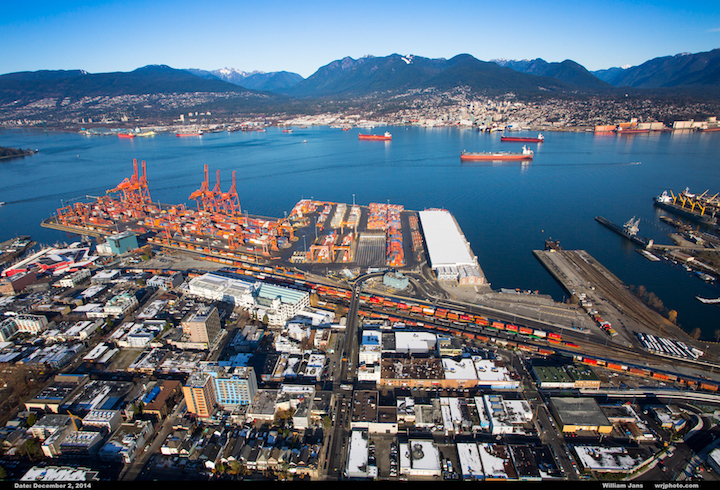Lockout at British Columbia ports slated for Thursday

Barring a last-minute breakthrough, nearly 7,000 dockworkers across British Columbia will be locked out by their employers starting with the first shift Thursday in the latest development in an ongoing labor dispute dominated by automation issues.
Early reports point to at least four cargo vessels being diverted so far to US Pacific Northwest ports and more were expected to follow if collapsed negotiations do not revive in a positive way between the BC Maritime Employers Association (BCMEA) and International Longshore and Warehouse Union Canada (ILWU-Canada). The BCMEA gave the lockout notice late Tuesday to the union after the latter had initiated an overtime ban Monday at two GCT container terminals at the Port of Vancouver.
“This is a reckless, irresponsible and needless decision that will undermine the economy of BC and Canada,” said ILWU President Rob Ashton.
He stressed that the union was committed to keeping the ports open and will show up at a federal mediation session today (Wednesday) in the hope the employers will also be present.
The lockout will apply to all Canadian West Coast ports, but not impact, per federal laws, dockers serving grain operations and cruise ships.
However, the impact will be considerable on container traffic through the ports of Vancouver and Prince Rupert, which alone account for about two thirds of Canada’s container cargo.
Last year, container throughput totaled 3.5 million TEU at Vancouver and, for the first time, exceeded one million TEU at Prince Rupert. Both ports have ambitious container capacity expansion plans.
In announcing the impending lockout, the BCMEA said the action represents “an extremely difficult conclusion” – arrived at after 17 months of fruitless bargaining.
According to Ashton, the key issue in the stalemate is the “insistence” of the employers to introduce technologies that would threaten union jobs.
Jeff Scott, president of the BCMEA, counters that improved automation will protect jobs. “In the last 10 years, we have been continually investing in automation and technology and during those years the overall hours have increased by 52% and the total workforce has increased by 34%.”
Union officials have expressed hope that the federal government will not impose an agreement if the impasse drags on several more days.
© Copyright 1999–2024 American Journal of Transportation. All Rights Reserved


